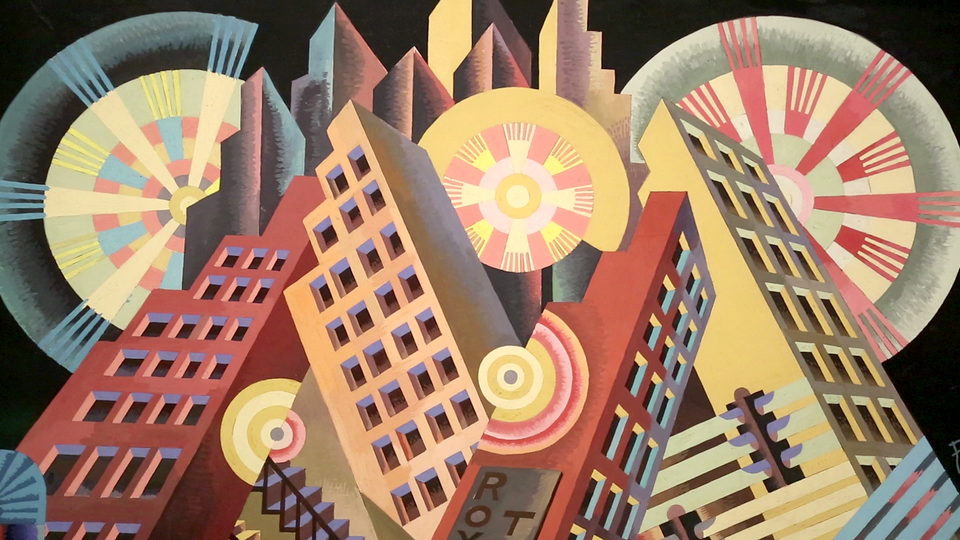
(...) Morning came, and Timmy was jolted out of bed by yet another knock on his door. This time, however, it was immediately followed by the comforting voice of his father.
“Breakfast’s ready, boy. We’ve got pancakes!”
For a moment, that familiar tone made Timmy forget about what had happened last night, but it didn’t last long.
It was one of those mornings where the sun was a bit too bright and the mood a bit too cheerful. The whole house smelled of pancakes, and Timmy could hear his father humming joyfully from the kitchen. Timmy put on some slippers and dragged himself out of his room. It was unusually cold, despite the sun bleeding in from every window. Still, he couldn’t be bothered to put on a jacket.
“Chilly, heh?” came his father as he served a platter of blueberry pancakes before sitting next to his son. Timmy nodded. “Listen, Tim. I’m sorry about last night, I shouldn’t have said those things. I love you. Don’t ever forget that, okay? You’ll be alright, I promise.”
Timmy nodded once more and started munching on his breakfast. His father kept blabbering about how they were going on a camping trip that weekend, and even the woman, who had been silently sipping coffee until that point, directed a couple of lines at Timmy with a smile on her face. Timmy did not say a word but, after his father cracked a bad joke about blueberries and elevators, a half-smile appeared on his mouth.
Perhaps he was going to be alright. Perhaps the new prescription from Dr. Zea would actually stop the episodes. Perhaps he would go on that camping trip and be happy again. Perhaps everything would go back to normal. Timmy still felt something broken inside him, but the pancakes were good, and the day was sunny, and his father loved him and, at that moment, he couldn’t have asked for more.
During the minutes that followed, there was only laughter and lighthearted conversation. Timmy was still weary, but even he managed to crack a chuckle or two. Then came the knocking.
Timmy instinctively shuddered, but his father quickly walked to the main door without losing his smile.
“Good mor-,” he started saying as he opened the door, but there was nobody on the other side. “Must be the neighbor’s kid playing a prank.”
Timmy’s father didn’t think much of it and started heading back to the table, but then the knocking was heard again. This time a bit faster, this time a bit stronger. They all quickly realized it wasn’t coming from the main door, but from Timmy’s room at the end of the hallway. Both adults looked at that door in disbelief while Timmy remained motionless as tears started rolling down his cheeks.
“It’s ok. It’s alright. I’m gonna check it out, ok?” stuttered the father before picking up a chef’s knife from the kitchen counter.
Timmy struggled to produce an answer, but it all amounted to a soft whimper. The woman stood alert near the edge of the table, holding her hand over her mouth without saying a word. Timmy’s father approached the door slowly as the knocking continued. He grabbed the doorknob, feeling the door trembling as if it was being struck not by one, but hundreds of hands. He took a deep breath and opened it violently.
There was nothing. But it was a different kind of nothingness. There were no shapes, no light, no movement or sound. It was a darkness so dense that it seemed almost solid. He froze.
The knocking had stopped and, for a couple of seconds, there was only silence. Timmy’s chair moved a few inches forward, even though his feet were not touching the ground. Then came a thump. Then audible crying. Timmy was being pulled into the darkness by some unseen force, by some unrelenting force that was in no rush. It dragged him slowly towards the room, completely indifferent to Timmy’s desperate kicks and tearful wailing.
His father jumped and tried to pull Timmy away from the darkness, but he couldn’t. The dragging was strong and steady. Strong to the point he felt his son would break if he pulled any harder. In the warm embrace of his father, Timmy was able to cry a single plea.
“Don’t let go, daddy. Don’t let go.”
His father held him even tighter and promised him that he wouldn’t.
“Find help!” he screamed. And the woman bolted out of the house almost immediately. “Stop!” he screamed again, as if the nothingness could hear him. “Please, stop...” his voice cracked. “Please...”
The dragging continued, pulling Timmy closer inch by inch. His father held Timmy’s face between his hands and tried to collect some degree of serenity.
“You’ll be alright, champ. You’ll be ok. I promise. I promise.”
Timmy buried his head on his father’s chest and whimpered. His father just held him with all the strength he could muster and looked intently into the darkness.
The longer he looked, the clearer it was. As he came closer, he began to see shapes, he began to hear sounds. He began to feel something way greater than himself crawling inside. Tears started pouring out of his eyes without him even noticing. He felt dread, a dread so tangible that it drilled under his chest like a bullet wound. The sudden warmth of urine quickly filled his pants.
His embrace got feeble. His hands grew loose. A potent shiver assaulted his body as he kissed his son on the brow. He looked at Timmy in the eye and whispered the one thing he could whisper without lying.
“I’m sorry.”
Footnote #3: The Cosmic
Imagine the vastness of the universe. Image the breadth of time. Imagine the size of galaxies and the distance light has to travel for us to see stars in the sky. Now imagine us. Imagine all that we have accomplished since our great forefathers rose from the ground and harnessed the power of fire. Every civilization and every war, every victory and every tragedy, everything we have endured as a species amounts to a minuscule accident within the incomprehensible scale of the cosmos.
And yet we are loud and arrogant. We are so loud and arrogant that some believe the universe started with us. But in reality, it didn’t. And when there’s no human left on earth, the cosmos will not care for our absence. No angels will cry, no monuments will be erected in our memory, no wars will be fought in our name, and there will be a point in time when no discernable remnant of humanity will remain. The universe will go on, and it will do so with utter indifference.

To face our own cosmic frivolousness is a profoundly disheartening task. It is so disheartening, in fact, that we can live a long and healthy live without ever thinking about it. What would be the point, right? Our lives tend to be worrisome enough as they are, and our place within the cosmos bears very little (if any) consequence to our daily endeavors. Even I, as I write this piece, would much rather think about what I’m going to have for breakfast tomorrow than whether or not my life is of any relevance to the universe (even though I’m painfully aware that it isn’t). After all, there is nothing beyond intellectual masochism that could compel us to entertain these thoughts. Or is it?
Enter fiction. One could think that in order to convey the triviality of humanity at a universal scale, one would require to put time and space into a cosmic perspective. However, it’s much more simple than that. The uneasiness we derive from the cosmos has very little to do with time and space and everything to do with power. What frightens us is the idea that we are small and helpless, that we are powerless to exert any form of relevant influence, that our agency is inconsequential.
Thus, The Cosmic in fiction should be understood as any force so overwhelmingly powerful that if we were to face it, we would have absolutely no chance of overcoming it. A tale of The Cosmic is never a heroic one. It is one about insurmountable obstacles, one about the abandonment of hope. It is about an indifferent god. The Cosmic is the universe incarnate, a tangible reminder of our insignificance.
The extent to which we may harness The Cosmic in writing is highly debatable. However, if we manage to channel a sliver of this transcendental dread through fiction, horror will follow.
Footnote #1: The Unknown
Footnote #2: The Maddening

I really hope you enjoyed this piece. Please follow me if you did! @jean.racines
Image sources (in order of appearance): Image 1, Image 2.
Further reading:
- Ahmad, A. (2010). Bordering On Fear: A Comparative Literary Study of Horror Fiction. Ottawa: Carleton University Press.
- Campbell, J. (1949). The hero with a thousand faces. Princeton: Princeton University Press.
- Lovecraft, H. P. (1973). Supernatural horror in literature. New York: Dover Publications.
- Mathiesen, T. (2004). Silently silenced: essays on the creation of acquiescence in modern society. Winchester: Waterside Press.
